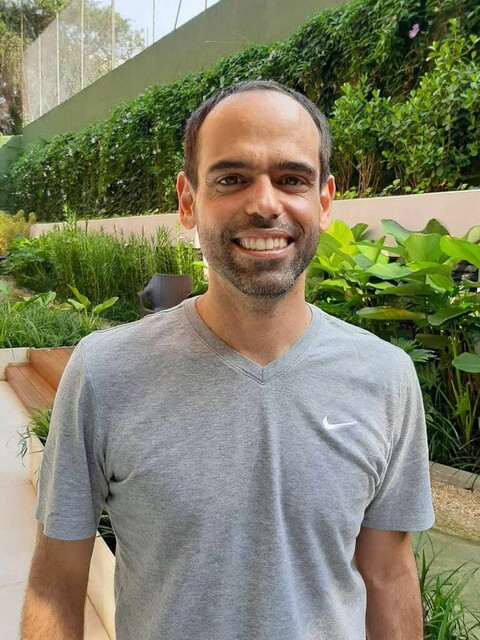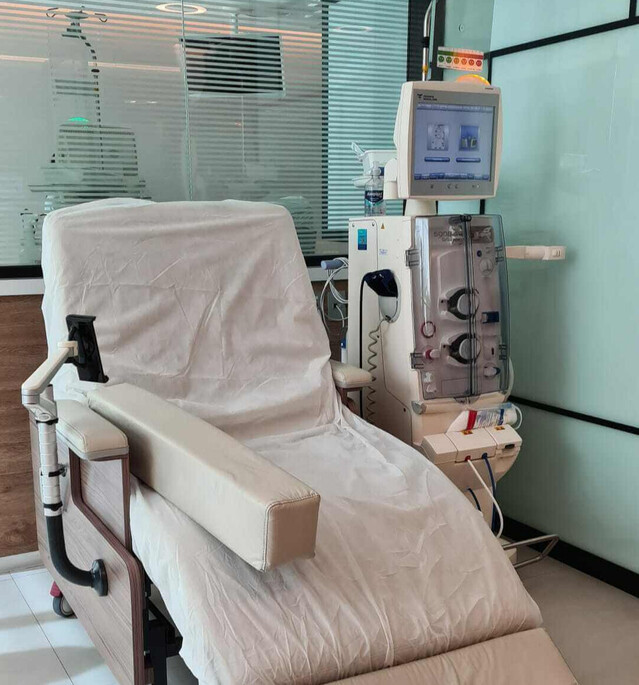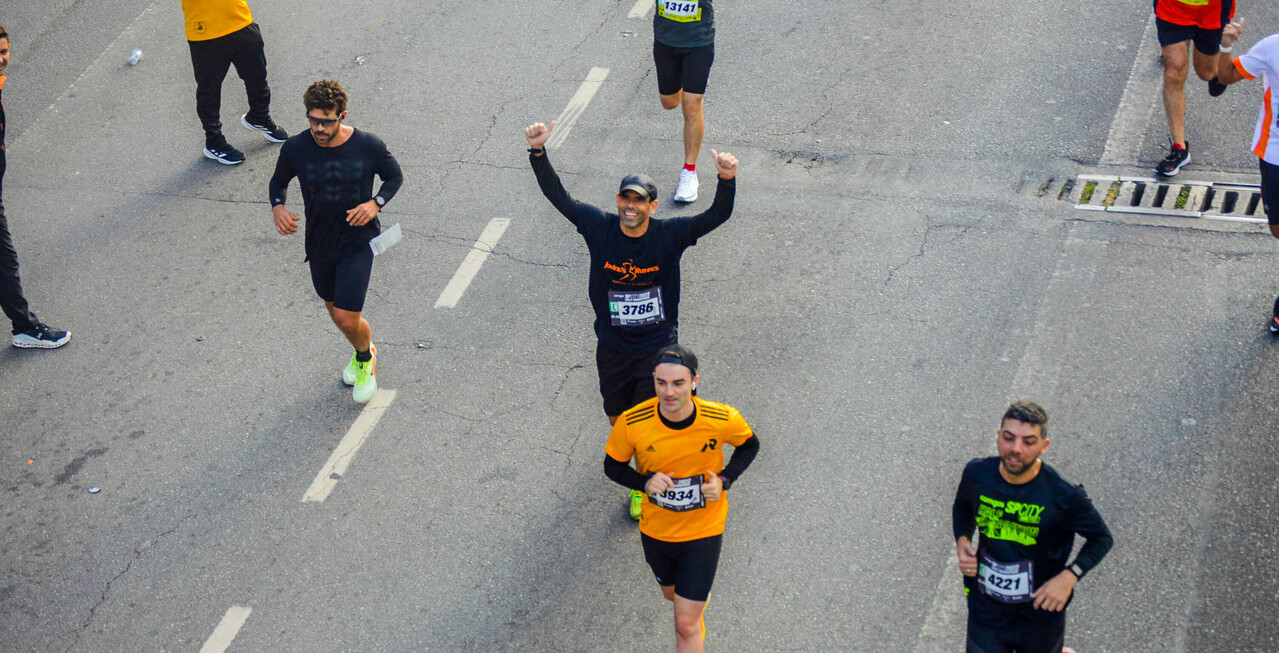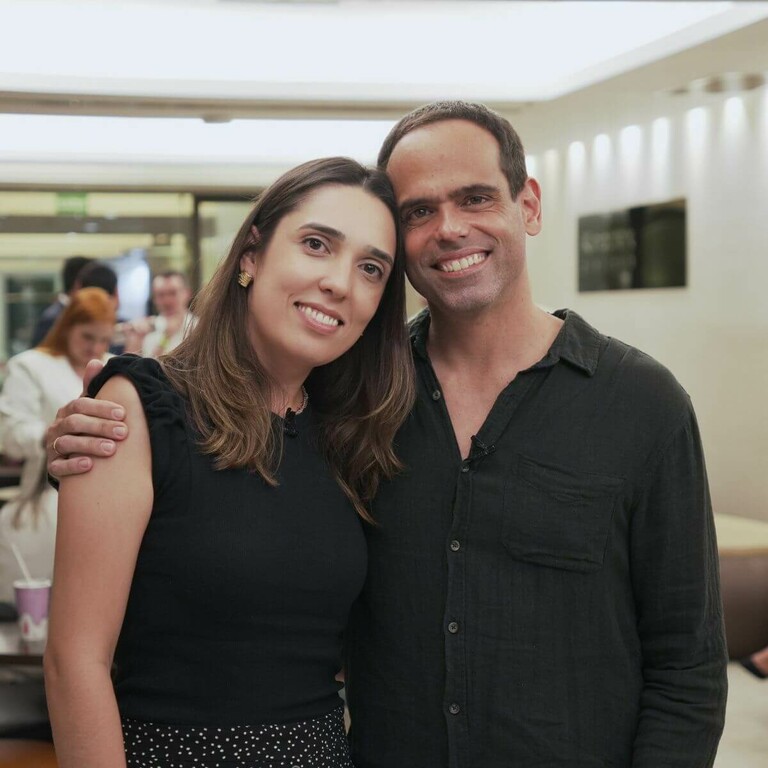Dialysis in the long run
How André turned an end into a beginning
At first glance, you would never guess that he has any particular medical issues: An athletic man in his early forties, who works as a video editor and spends his free time training for marathons. But André Foligno has overcome a lot more challenges than most of his peers to get to this point. After being diagnosed with chronic kidney failure at the age of 28, he had to learn how to cope with his new normal. And, more importantly, how to make the most of it. This is André’s story, in his own words.

How did you receive your diagnosis and what happened afterwards?
To this day, I don’t know the actual cause of my kidney disease. I just had extremely high blood pressure and after countless consultations with medical specialists, we discovered that I was suffering from chronic kidney failure. The damage had already been done, we couldn’t do anything to save my kidneys. Luckily, I received a kidney transplant from my uncle only a few months later. The transplant lasted for four and a half years, but then I had to start haemodialysis. This was quite an adjustment, it took me several months to recover emotionally.
What were the biggest challenges as a new dialysis patient?
Initially, I was really struggling with the restricted water intake. People who undergo haemodialysis treatment usually stop urinating and accumulate all the liquid. So, you have to be careful to not drink too much. That’s why I started running: It allowed me to drink more water because I was sweating a lot. And then I realised that running is so much more than that: It's about being 100 % present in the moment, observing my body and mind. I always finish physically tired, but mentally refreshed. To me, running is like therapy.
How does your everyday life with dialysis look like today?
I've been dialysing at Fenix Nefrologia in Sao Paulo since the beginning. In the first month, I had to use a permanent catheter, and then we switched to a fistula. Now, we do the HDF modality on Fresenius 4008 machines. Patients also work with an interdisciplinary team of nutritionists, cardiologists, physiotherapists, infectious disease specialists, and psychologists. The treatment is very effective and gives me the security I need to lead an “almost normal” life. Today, I look at dialysis as a job: In the mornings, I go to the clinic and sit through my dialysis treatment for two hours. Then I’ll do my workout – weight training twice a week, running three times a week. After training, I get home around 11 am and go on with the rest of my day. Dialysis is just part of my routine now, it doesn’t bother me that much. Only travelling can be quite difficult, since I can only stay in places with a clinic nearby. I’d probably travel a lot more if I wasn’t dependent on dialysis.

What helped you most navigating life with dialysis?
There are certainly many factors involved. But the support of my family was fundamental, especially in the beginning. Of course, the treatment I receive from the whole team at my clinic is also very important. This all helped (and still helps) to keep a positive mindset and understand that there is so much to live for.
Do you have any advice for other dialysis patients?
Always look on the bright side! Remember that dialysis keeps you alive and gives you the chance to experience many more good things. There are difficulties, of course, but who doesn’t face difficulties? I think that while we're alive, we have to try to live as well as possible, do what brings us joy, and surround ourselves with kind, happy people. And if you're surrounded by kind, happy people, that means you're one of them.

Are there common misconceptions about dialysis you'd like to dispel?
Many people think of dialysis as the end of life – when it actually represents a new beginning! There’s this notion that people undergoing haemodialysis always feel weak and sick, but that’s absolutely not true. Dialysis patients can do nearly everything a “normal” person does. They just need to take a few extra precautions.
In your opinion, how can dialysis treatment be improved in the future? Any changes you would like to see in the healthcare system?
I consider myself lucky because I receive my treatment at a great private clinic. But that’s not the reality for most Brazilians. Public resources are limited and we still have a lot of poorly equipped clinics here. In an ideal world, everybody should have access to treatment like mine. And I think that all over the world, we could do more research to find possible cures or less invasive treatment options. Lately, we've seen progress in xenotransplantation (i. e. using kidneys from genetically modified pigs). This could put an end to the endless waiting list for transplants (I've been waiting for 5 years now). There’s also a study on artificial kidneys in the United States, but it will take a long time to figure out if (and how) this might work. Either way, I remain hopeful that we’ll see a lot of improvements in years to come.
Your resilience and outlook on life is impressive. Personally, what do you think have been your biggest achievements so far?
Completing a marathon (while on dialysis) is definitely up there! I trained hard for it and crossing the finish line felt extremely exciting and rewarding. And being able to lead a pleasant life despite having a chronic illness is also a great achievement.
Agreed! Last but not least: What are your goals for the future?
My main goal is to get a transplant so that I can travel more and do things without having to worry about dialysis. I plan to run another marathon next year and I also dream of running a major one day. But the biggest goal of all is to sustain my mental health and the joy of living – together with my fiancée, we’re getting married later this year!



